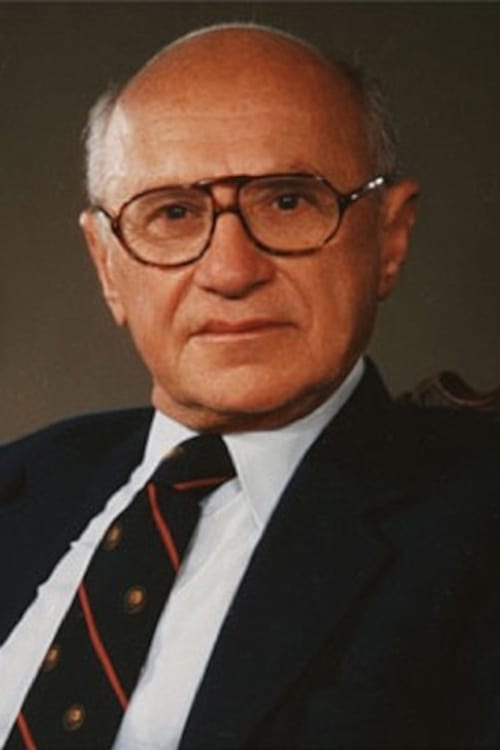Milton Friedman
Nascimento : 1912-07-31, Brooklyn, New York, USA
Morte : 2006-11-16
História
Milton Friedman was an American economist who received the 1976 Nobel Memorial Prize in Economic Sciences for his research on consumption analysis, monetary history and theory, and the complexity of stabilization policy. With George Stigler and others, Friedman was among the intellectual leaders of the second generation of Chicago price theory, a methodological movement at the University of Chicago's Department of Economics, Law School, and Graduate School of Business from the 1940s onward.
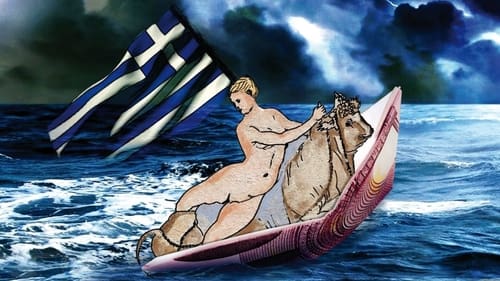
Self (archive footage)
A journey through Greece and Europe’s past and recent history: from the Second World War to the current crisis. It is a historical documentary, a look into many stories.
«If Democracy can be destroyed in Greece, it can be destroyed throughout Europe»
Paul Craig Roberts

Self (voice)
The Swap is the third chapter of the PolEc Trilogy, comprising Wandering Marxwards (1998) and The Three Failures (2006). It features the same character as in the previous episodes, but now reduced to a lost, exhausted soul roaming Shanghai's cityscape from the remotest periphery to the financial district. Another narrative, spoken this one, takes us to September 2008, as gigantic bailouts put the financial system on life support instead of letting it collapse, thus seizing our reality and replacing it with a fiction tailored for the situation. These two streams end up meeting on a Shanghai dancefloor, where unresolved contradictions can finally be performed.
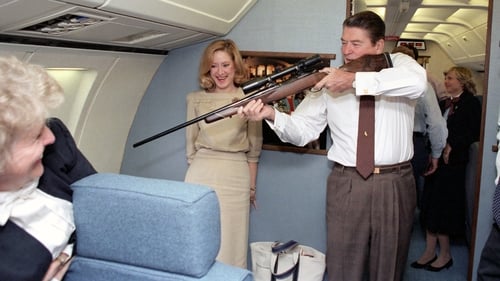
Self - Economist (archive footage)
A detailed investigation into the political and economic interests that, since the beginning of the 20th century, have pulled the strings of the arms trade, hidden in the shadows, feeding the shameful corruption of politicians and government officials and promoting a state of permanent war throughout the world, while they cynically asked for a lasting and universal peace.

Self (archive footage)
In the last 250 years, free-market ideology has played a central role in the development of the logic and rhetoric that have influenced the daily life of populations throughout the world. It was cornered for a few decades during the twentieth century in favor of a social economy for the public interest, and then returned to the limelight in the last thirty years of the century to dominate the logics that drive world economies, doing the favor of the elites at the expense of 99%. Through the testimony of six people informed about the facts, Laissez-faire offers a historical and ideological perspective through which to identify the fundamental problems of the economic mechanism on which societies are based.
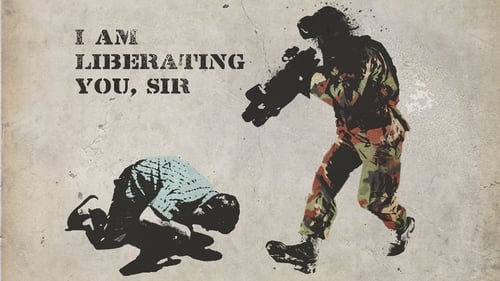
Self
An investigation of "disaster capitalism", based on Naomi Klein's proposition that neo-liberal capitalism feeds on natural disasters, war and terror to establish its dominance.
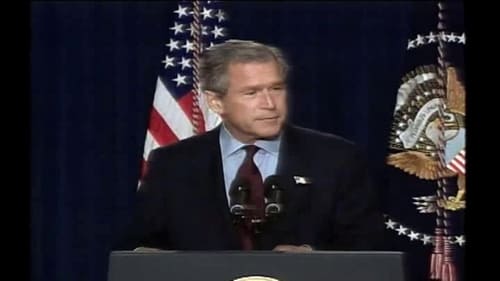
Himself
Jamie Johnson takes the exploration of wealth that he began in Born Rich one step further. The One Percent, refers to the tiny percentage of Americans who control nearly half the wealth of the U.S. Johnson's thesis is that this wealth in the hands of so few people is a danger to our very way of life.

Dr. Friedman states, "There is not a single person in the world who can make this pencil." He explains that the creation of even a simple object - like the "lead" pencil - requires the knowledge of many people, lumberjacks, steel manufacturers, miners, etc. These people may not speak the same language, they may not know or like one another, yet the market enables them to combine knowledge and effort to produce wealth.

Producer
A young Japanese entrepreneur is set on a quest by his wealthy father to find the world's best opening line in order to "get the girl". But when they stumble upon a sure-fire love potion, mayhem ensues.

The final part of the 'Tyranny of the Status Quo' series features Dr. Friedman discussing politicians with a panel of students.

Milton sits with a panel of students to discuss the always exciting topic of bureaucrats!

'Beneficiaries' is the first part of the 'Tyranny of the Status Quo' series, featuring Dr. Friedman discussing topics with a select group of college students.

Writer
Democracies have only recently been considered desirable. Historically, it was feared that democracies always self destruct when citizens, forgetting that you cannot remove want and misery through legislation, insist on government actions that physically and morally bankrupt their nation. Friedman explains why the United States has so far avoided this outcome and how we can continue to do so.

Democracies have only recently been considered desirable. Historically, it was feared that democracies always self destruct when citizens, forgetting that you cannot remove want and misery through legislation, insist on government actions that physically and morally bankrupt their nation. Friedman explains why the United States has so far avoided this outcome and how we can continue to do so.

Inflation results when the amount of money printed or coined increases faster than the creation of new goods and services. Money is a "token" of the wealth of a nation. If more tokens are created than new wealth, it takes more tokens to buy the same goods. Friedman explains why politicians like inflation, and why wage and price controls are not solutions to the problem. Friedman visits Japan, U.S. and Britain.

Writer
Inflation results when the amount of money printed or coined increases faster than the creation of new goods and services. Money is a "token" of the wealth of a nation. If more tokens are created than new wealth, it takes more tokens to buy the same goods. Friedman explains why politicians like inflation, and why wage and price controls are not solutions to the problem. Friedman visits Japan, U.S. and Britain.

Writer
Unions sometimes protect some workers - their members - but usually at the expense of other workers. Government protects its employees and special groups of workers at the expense of other workers. Both unions and government restrict freedom. Friedman explains how the competition of employers for the talents of workers leads to the highest wages and best working conditions.

Unions sometimes protect some workers - their members - but usually at the expense of other workers. Government protects its employees and special groups of workers at the expense of other workers. Both unions and government restrict freedom. Friedman explains how the competition of employers for the talents of workers leads to the highest wages and best working conditions.

Writer
Various government agencies have been created on the claim that they will protect the consumer. These agencies restrict freedom, stifle beneficial innovation, and become agents for the industries or groups they are intended to regulate. Friedman explains how the apparent chaos of the market place, the competition of many suppliers for business, is the best protection of consumer interests.

Various government agencies have been created on the claim that they will protect the consumer. These agencies restrict freedom, stifle beneficial innovation, and become agents for the industries or groups they are intended to regulate. Friedman explains how the apparent chaos of the market place, the competition of many suppliers for business, is the best protection of consumer interests.

Writer
Parental choice and parental responsibility in the education of children is the U.S. tradition and is consistent with a free society. Centralized government control has eroded freedom and adversely affected the quality of education. The poor help pay for education for the future rich. Friedman has long advocated using vouchers to solve the problem. He explains why. Friedman visits U.S. and Britain.

Parental choice and parental responsibility in the education of children is the U.S. tradition and is consistent with a free society. Centralized government control has eroded freedom and adversely affected the quality of education. The poor help pay for education for the future rich. Friedman has long advocated using vouchers to solve the problem. He explains why. Friedman visits U.S. and Britain.

Writer
The Declaration of Independence says, "all men are created equal." Friedman explains that this did not mean all persons should or will have equal talents or income. Equal opportunity to better one's self, and the right to personally benefit from the gains realized, are consistent with freedom. Equality of results requires force. Taking from some to give to others destroys freedom and removes the incentive for creating new wealth. Friedman visits India, U.S. and Britain.

The Declaration of Independence says, "all men are created equal." Friedman explains that this did not mean all persons should or will have equal talents or income. Equal opportunity to better one's self, and the right to personally benefit from the gains realized, are consistent with freedom. Equality of results requires force. Taking from some to give to others destroys freedom and removes the incentive for creating new wealth. Friedman visits India, U.S. and Britain.

Writer
The welfare state arises from the attempt to do good with other people's money. Such attempts always fail because: Nobody spends somebody else's money as carefully as his own. Welfare is supply driven. Those spending the money use force to collect it and to insure those receiving it use it for "right" purposes. Good intentions are corrupted by bad means. Friedman visits U.S. and Britain.

The welfare state arises from the attempt to do good with other people's money. Such attempts always fail because: Nobody spends somebody else's money as carefully as his own. Welfare is supply driven. Those spending the money use force to collect it and to insure those receiving it use it for "right" purposes. Good intentions are corrupted by bad means. Friedman visits U.S. and Britain.

Writer
The Great Depression has been popularly viewed as a failure of capitalism. The stock market crash, the failure of the Bank of the United States, loss of personal savings, were visible symbols supporting this belief. As Friedman explains, the real cause was the unseen failure of government policy and action. Yet this crisis resulting from government failure leads to decades of government expansion.

The Great Depression has been popularly viewed as a failure of capitalism. The stock market crash, the failure of the Bank of the United States, loss of personal savings, were visible symbols supporting this belief. As Friedman explains, the real cause was the unseen failure of government policy and action. Yet this crisis resulting from government failure leads to decades of government expansion.

Writer
Government planning and detailed control of economic activity lessens productive innovation, and consumer choice. Good, better, best, are replaced by "approved" or "authorized." Friedman shows how "established" industries or methods, seek government protection or subsidization in their attempts to stop or limit product improvements which they don't control. Friedman visits India, Japan and U.S.

Government planning and detailed control of economic activity lessens productive innovation, and consumer choice. Good, better, best, are replaced by "approved" or "authorized." Friedman shows how "established" industries or methods, seek government protection or subsidization in their attempts to stop or limit product improvements which they don't control. Friedman visits India, Japan and U.S.

Writer
America’s freedom and prosperity derive from the combination of the idea of human liberty in America’s Declaration of Independence with the idea of economic freedom in Adam Smith’s Wealth of Nations. Friedman explains how markets and voluntary exchange organize activity and enable people to improve their lives. He also explains the price system. Friedman visits Hong Kong, U.S. and Scotland.

America’s freedom and prosperity derive from the combination of the idea of human liberty in America’s Declaration of Independence with the idea of economic freedom in Adam Smith’s Wealth of Nations. Friedman explains how markets and voluntary exchange organize activity and enable people to improve their lives. He also explains the price system. Friedman visits Hong Kong, U.S. and Scotland.

Lecture given at National Association of Manufacturers/National Industrial Council, Congress of American Industry in Washington, D.C. as part of the 'Milton Friedman Speaks' series.

Lecture given at William and Mary College as part of the 'Milton Friedman Speaks' series.

Lecture given at WQLN TV in Erie, Pennsylvania as part of the 'Milton Friedman Speaks' series.

Lecture given at Ford Foundation in New York City as part of the 'Milton Friedman Speaks' series.

Lecture given at Harlem Parents for Vouchers in New York City as part of the 'Milton Friedman Speaks' series.

Lecture given at The Mayo Clinic in Rochester, MN as part of the 'Milton Friedman Speaks' series.

Lecture given at Bank of America in San Francisco, CA as part of the 'Milton Friedman Speaks' series.

Landon Lecture given at Kansas State University as part of the 'Milton Friedman Speaks' series.

Lecture given at Americanism Education League in Pasadena, CA as part of the 'Milton Friedman Speaks' series.

Lecture given at University of San Diego & San Diego Chamber of Commerce as part of the 'Milton Friedman Speaks' series.

Lecture given at University of Rochester as part of the 'Milton Friedman Speaks' series.

Lecture given at Stanford University as part of the 'Milton Friedman Speaks' series.

Lecture given at Cornell University as part of the 'Milton Friedman Speaks' series.

Lecture given at Utah State University as part of the 'Milton Friedman Speaks' series.

Lecture given at University of Chicago as part of the 'Milton Friedman Speaks' series.
